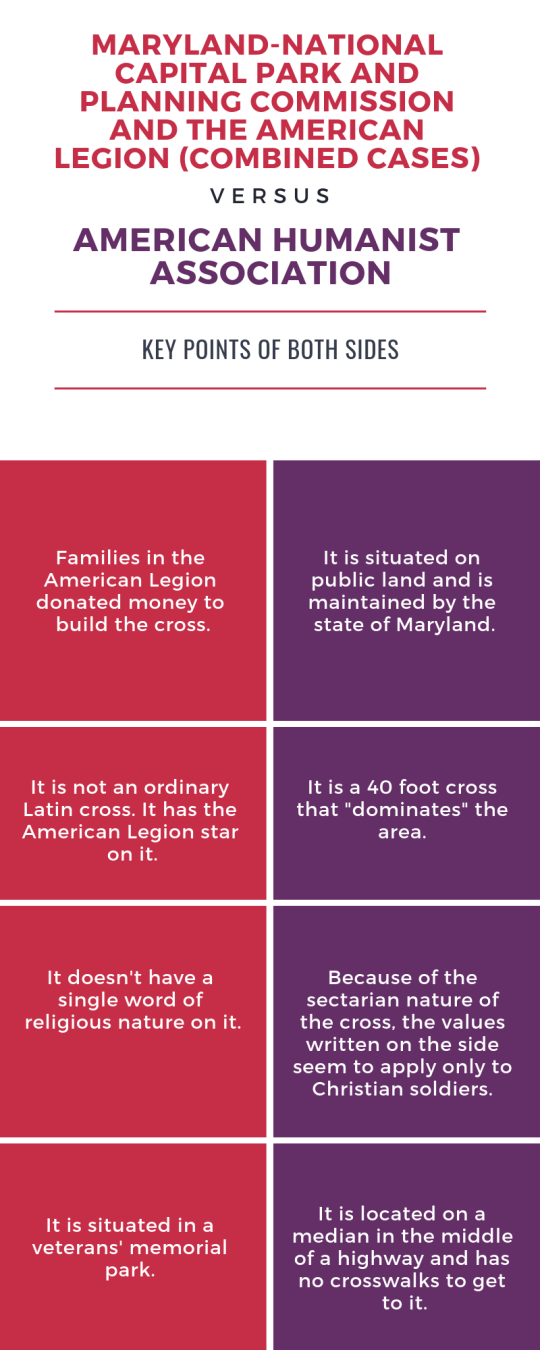Most of the conservative-leaning justices stayed relatively quiet during the oral presentations, while the more liberal justices intensely questioned those who argued the cross is a religious symbol that must be removed as well as those who defended the cross as a secular memorial to soldiers lost in World War I.
Justices Sonya Sotomayor, Ruth Bader Ginsburg, and Brett Kavanaugh asked attorneys questions that seemed to reflect skepticism that the cross was a secular symbol.
Ginsburg declared that "the Latin cross is the preeminent symbol of Christianity."
"People wear crosses to show their devotion to the Christian faith," Ginsburg said.
Kavanaugh agreed, saying that the cross is undeniably religious in nature.
A significant portion of the arguments was taken up with legal analyses of the type of tests the high court has used in the past and should use in the future to determine if a public memorial is religious or secular in nature.
When Neal Katyal, representing The American Legion, argued that the cross is a part of a memorial park, Sotomayor countered by pointing out that the memorial is in the middle of a major highway and you "can't really tell that this cross is with anything else."
Michael Carvin, representing The American Legion, attempted to use the cross's "long-standing tradition" as a reason for it to remain. But, Sotomayor responded: "I don't know of a founding father, town, or state that put up a 40-foot cross."
Justice Elena Kagan questioned cross-supporting attorneys on whether the cross "indicated that the city was aligning itself to a specific religion."
Kagan also pressed Monica Miller, the attorney representing the American Humanist Association, which opposes the cross.
She and Justice Samuel Alito both asked Miller why this particular cross could not be stripped of its religious significance, citing the Ten Commandments as an example of a religious symbol taking on a secular meaning.
Neal Katyal, arguing for the American Legion, which defends the cross, argued that the cross has taken on a secular identity in the context of World War I memorials.
Miller argued that the cross is a prime example of a government acting as a "mouthpiece" for a religion. She said that there were many reasons why minorities, back when the memorial was built, did not feel safe in objecting to its form, citing instances of Klu Klux Klansmen in the area silencing those who practiced religions other than Christianity.
Alito asked Miller what message the court would send if justices ruled against keeping the cross. She responded that removing it would restore the court to a place of neutrality.
Members of the American Humanist Association, Steve Lowe and Fred Edwords, were happy with how Miller argued their case.
"I think we answered the questions a little bit better than our opponents in some respect," Miller said. Lowe agreed, saying that he was very "proud" of how she represented them.
"The three women of the court were our best advocates," Lowe said in reference to Ginsburg, Kagan, and Sotomayor.
Kevin Bartlett, the legal counselor for the American Legion, which has its symbol on the cross, said that the whole case is a "slap in the face" to veterans.
"Nobody cared about religion when I signed up," said Bartlett, a Navy veteran. "We have to protect these memorials."



